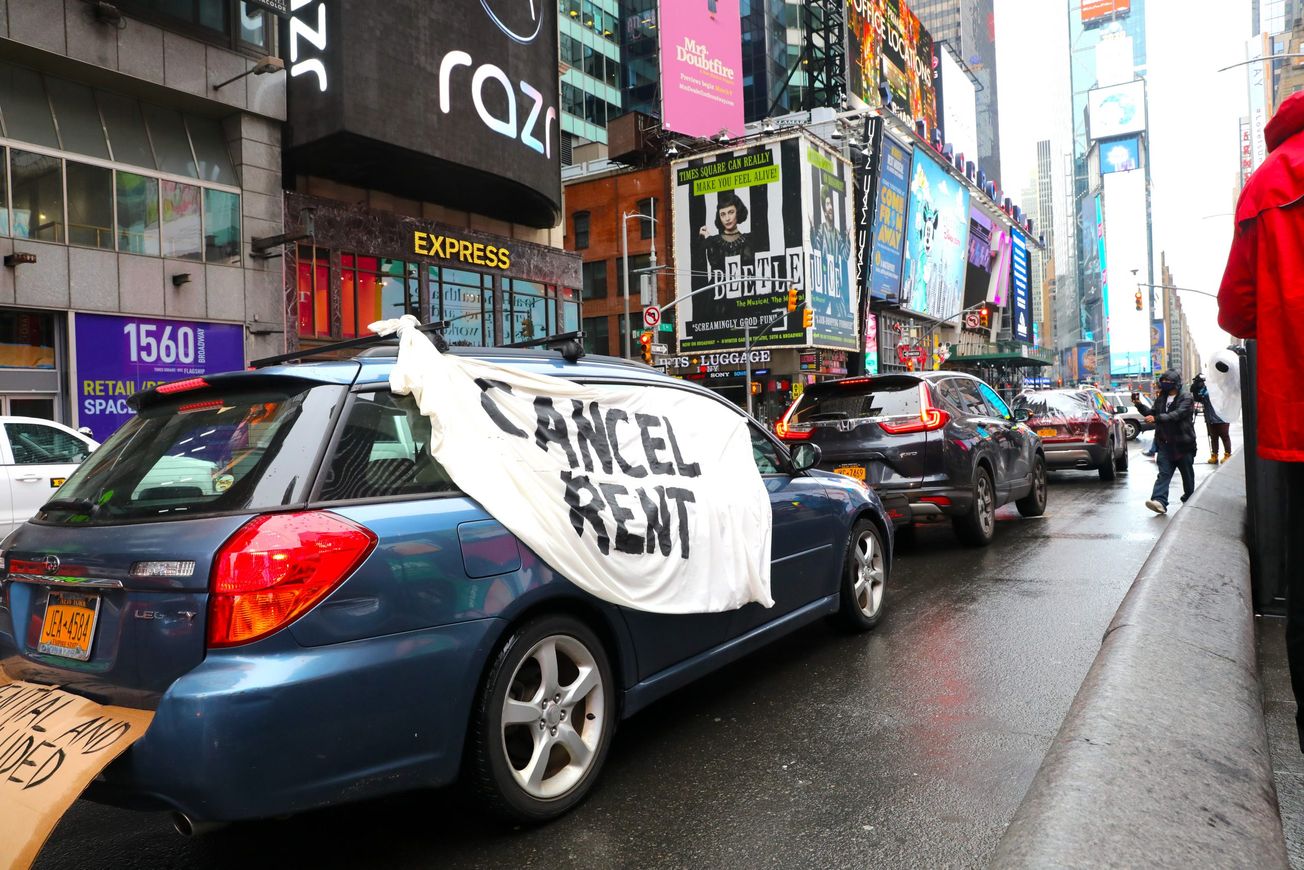Off-Off-Broadway theaters are banding together to seek some form of rent relief as continued payments threaten their survival.
Close to 400 attendees tuned in to a virtual town hall Thursday in which elected officials urged members to make their voices heard on state rent forgiveness bills, extended eviction suspensions and business interruption insurance coverage. Unless these measures are passed, many members of the theaters of 99 seats or less did not see a way forward due to the financial impact of the COVID-19 pandemic.
“Without cancelled rent or some sort of forgiveness this year, I’m afraid that the whole downtown theater community, our future is at risk,” said Ana Mari de Quesada, producing artistic director of the Wild Project in the East Village.
The town hall was organized by the League of Independent Theater and IndieSpace, which helps independent theaters find affordable spaces, after hearing concerns from members and seeing the closure of Shetler Studios and the Secret Theatre in Queens.
As they look for relief, the community appears to have the support of several local and state leaders, including New York State Senator Brad Hoylman (D-Manhattan), Assemblymember Robert Carroll (D-Brooklyn), Assemblymember Harvey Epstein (D-Manhattan) and Jimmy Van Bramer (D-Queens), deputy leader of the New York City Council, who all took part in the town hall and have backed varying legislative efforts.
Unlike Broadway shows, which are dealing with their own rent concerns, most of these theater companies do not have reserves to draw upon while their theaters are closed, according to Randi Berry, executive director of IndieSpace. Some members of the independent theater community, who typically have standard commercial leases, have not been paying rent, in the hope of legislative action or an arrangement with their landlords. Others have been paying, but may not be able to do so for much longer.
“If they can pay and do pay June, that may be enough to close their doors for good,” Berry said in an earlier interview with Broadway News.
Thus far, commercial tenants have seen some form of protection under Gov. Andrew Cuomo’s eviction moratorium, which has been extended through Aug. 20 for tenants who are unable to pay rent due to the coronavirus pandemic or those who qualify for unemployment. However, without a clear reopening date for their theaters, members worried about eviction after that deadline.
Further, even when theaters are allowed to reopen, independent theater leaders believe that initial business will be slow. Erez Ziv, managing artistic director of FRIGID New York, has already removed seats in one of his theaters in preparation for a future socially distant audience. That model will make it difficult to pay the bills.
“There’s no way that we can pay our rent on 30% capacity,” Ziv said during the town hall.
In the interim, theaters are looking for the passage of two bills in the state legislature — Senate Bill S8125A, which would allow for complete rent forgiveness for 90 days, and Senate Bill S8190A, which would offer rent forgiveness through the duration of the COVID-19 pandemic and future coverage. Both bills remain in committee.
Additional support may come from a bill that would prevent evictions for six months after the end of the COVID-19 pandemic.
Both the theaters and elected officials acknowledged that any rent relief will need to be coupled with mortgage relief for the landlords. Overall, it will likely require a collaborative effort that includes some form payment or concession from both parties, as well as the possibility of state or federal funding. Some on the call, however, were skeptical that federal financial aid would come to fruition.
Still, Hoylman stressed the need for independent theaters to speak in “collective voice” about their plight to urge needed funding from the federal government. Van Bramer, chair of cultural affairs for New York City, said he would also speak up for independent theaters in upcoming budget negotiations.
“I’m going to be devoting the next month of my life to making sure that our community is respected in this process and not devastated,” Van Bramer said.
As theater companies wait for potential relief packages, Carroll also urged members to file insurance claims, even if they do not believe they have business interruption coverage related to the pandemic, in order to make up some of their lost income. This coverage has been a necessary step to getting capital to Broadway shows.
Carroll is a sponsor of a bill that would require business interruption coverage related to COVID-19, even if it was not specifically mentioned in the policy. However, not all independent theaters opted for that business interruption coverage before the outbreak, Berry said.


























































